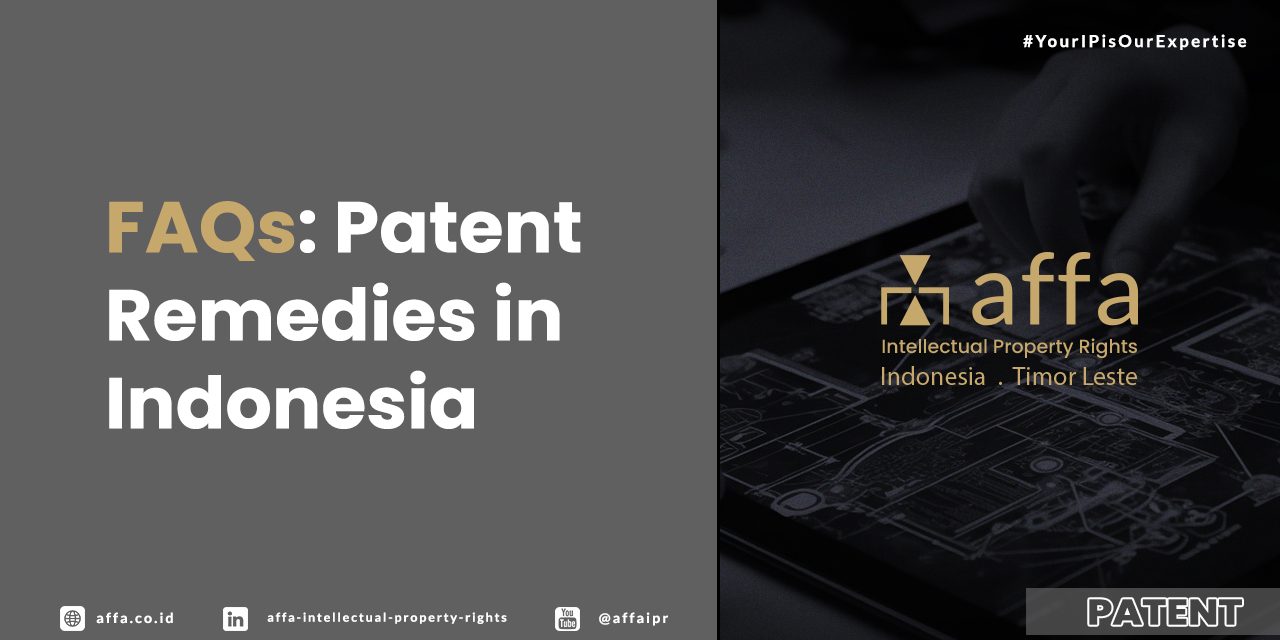Monetary Remedies for Infringement
Q: What monetary remedies are available against a Patent infringer? When do damages start to accrue? Do damage awards tend to be nominal, provide fair compensation, or be punitive? How are royalties calculated?
A: All laws about Intellectual Property assets allow the infringed to seek damages through the Court of Commerce. However, there is no known formula for determining the damages to be awarded. When seeking damages, the plaintiff considers the combination of material loss and immaterial loss. The latter often has a significantly higher amount. Still, we have not seen any landmark cases where the Court of Commerce awards the plaintiff with the total sought damages based on material and immaterial loss.
The compensation shall be given based on a final and binding decision of a civil or criminal court.
Injunctions Against Infringement
Q: To what extent can a temporary injunction or a final injunction against future infringement be obtained? Is an injunction effective against the infringer’s suppliers or customers?
A: Regarding injunctions, the Patent Law allows the rights holder to request a provisional injunction to stop the entry and circulation of infringing items, secure or confine them, and avoid greater losses.
The injunction petition shall be filed before the Court of Commerce.
Banning Importation of Infringing Products
Q: To what extent is it possible to block the importation of infringing products into the country? Is there a specific tribunal or proceeding available to accomplish this?
A: Banning the importation of infringing products is only practically possible if it is related to Trademark or Copyright infringement, which can be done by filing a Customs IP Recordal Application before the Indonesian Customs and Excise. Even then, it is only possible if the rights holder is an Indonesian individual or holds a share in an Indonesian company.
Attorneys’ Fees
Q: Under what conditions can a successful litigant recover costs and attorneys’ fees?
A: Attorney’s fees shall be borne by the party that receives legal services from the entrusted attorney. Hence, seeking compensation from the other party for the legal fees already incurred by the claimant or plaintiff will not be possible.
Wilful Infringement
Q: Are additional remedies available against a deliberate or wilful infringer? If so, what is the test or standard to determine whether the infringement is deliberate? Are opinions of counsel used as a defense to a charge of wilful infringement?
A: There are no additional remedies available against deliberate or wilful infringement. The Patent Law does not specify the threshold level that constitutes wilful or intentional infringement. The Patent Law only states that without a patent holder’s permission, it is prohibited to make, use, sell, import, rent, deliver, or provide any patented product for sale or rent. Additionally, using a patented process to make a product or taking other actions, as mentioned above, is prohibited without the patent holder’s permission. In summary, this provision sets out the exclusive rights of a patent holder. It prohibits others from using, selling, or making the patented product or process without permission (see Article 160 of the Patent Law).
The Limits for Lawsuits
Q: What is the time limit for seeking a remedy for Patent infringement?
A: The Patent Law does not regulate any specific time limit for filing a Patent infringement or compensation claim. As long as the Patent is still registered, the holder has the right to enforce it.
Patent Marking
Q: Must a Patent holder mark its patented products? If so, how must the marking be made? What are the consequences of failure to mark? What are the implications of false Patent marking?
A: The Patent Law does not regulate the obligation concerning Patent marking.
Should you need more information regarding Patent Remedies in Indonesia, please do not hesitate to contact us via [email protected].







